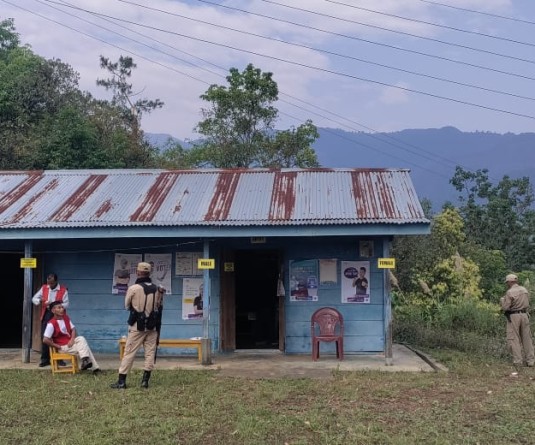
People walk past a damaged supermarket in Ealing, west London, after a night of rioting, Tuesday, Aug. 9, 2011. In London, groups of young people rampaged for a third straight night, setting buildings, vehicles and garbage dumps alight, looting stores and pelting police officers with bottles and fireworks into early Tuesday. The spreading disorder was an unwelcome warning of the possibility of violence during London's 2012 Summer Olympics, less than a year away. (AP Photo/Lefteris Pitarakis)
LONDON, August 9 (Reuters): British Prime Minister David Cameron said on Tuesday police will crack down hard to quell a wave of rioting and looting across London over the past three nights -- the worst violence in the British capital in decades. “This is criminality pure and simple and it has to be confronted and defeated,” Cameron told reporters outside his Downing Street office after returning from a family holiday in Tuscany to deal with a crisis that has stunned Londoners. “People should be in no doubt that we will do everything necessary to restore order to Britain’s streets,” he said.
Cameron said he would recall parliament from its summer recess on Thursday to make a statement on the unrest, which has also spread to other British cities. Politicians and police firmly blamed the violence, in which shops were looted and cars and buildings set ablaze in several mostly poor areas of London -- on criminals and hooligans. But some commentators and local residents said its roots lay in tensions and anger over economic hardship in a city where the gap between the haves and have-nots is highly visible and the prospects for many youths are dim.
“We ain’t got no jobs, no money. We heard that other people were getting things for free, so why not us?” asked E.Nan, a young man.
Cameron said he would recall parliament from its summer recess on Thursday to make a statement on the unrest, which has also spread to other British cities. Politicians and police firmly blamed the violence, in which shops were looted and cars and buildings set ablaze in several mostly poor areas of London -- on criminals and hooligans. But some commentators and local residents said its roots lay in tensions and anger over economic hardship in a city where the gap between the haves and have-nots is highly visible and the prospects for many youths are dim.
“We ain’t got no jobs, no money. We heard that other people were getting things for free, so why not us?” asked E.Nan, a young man.




